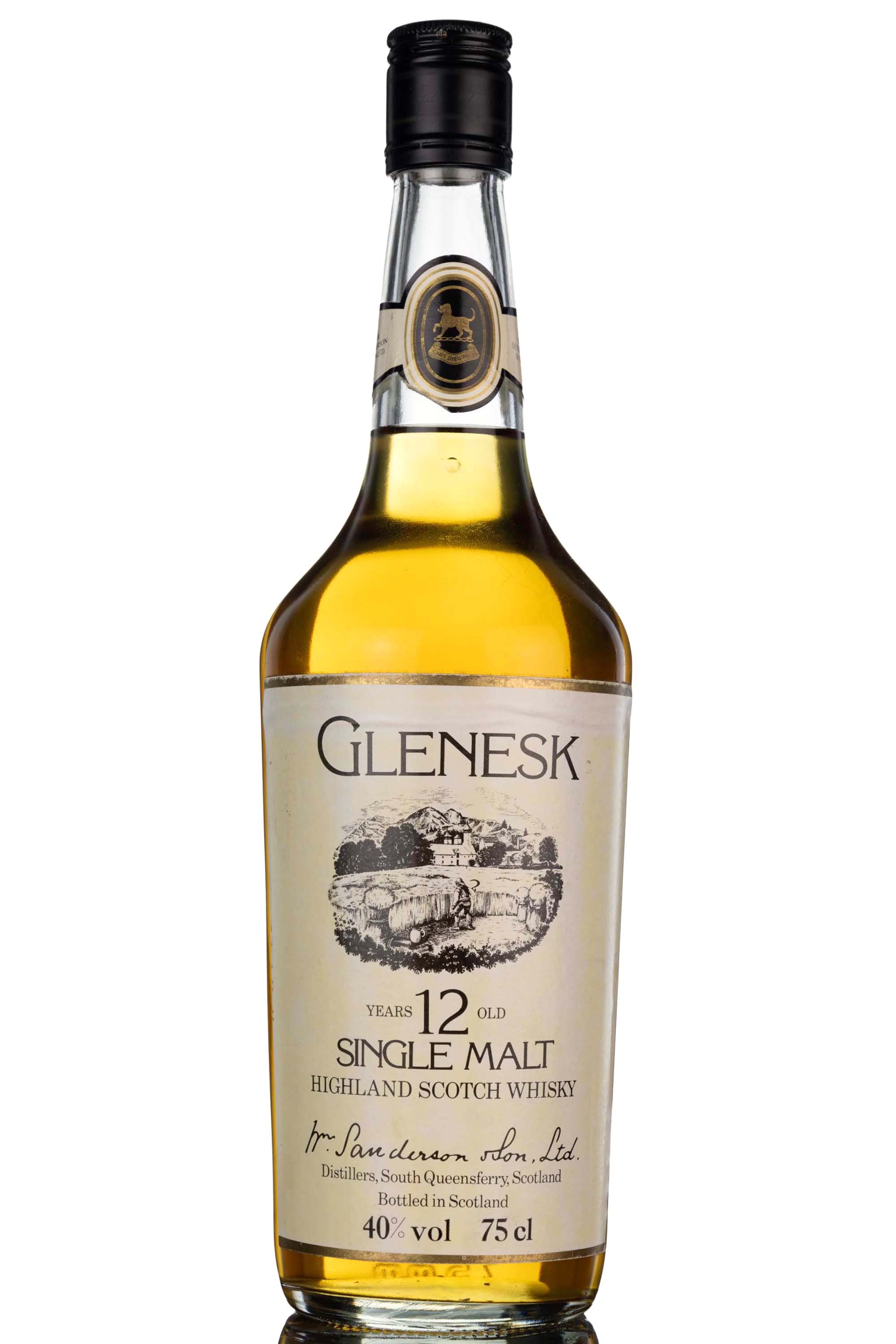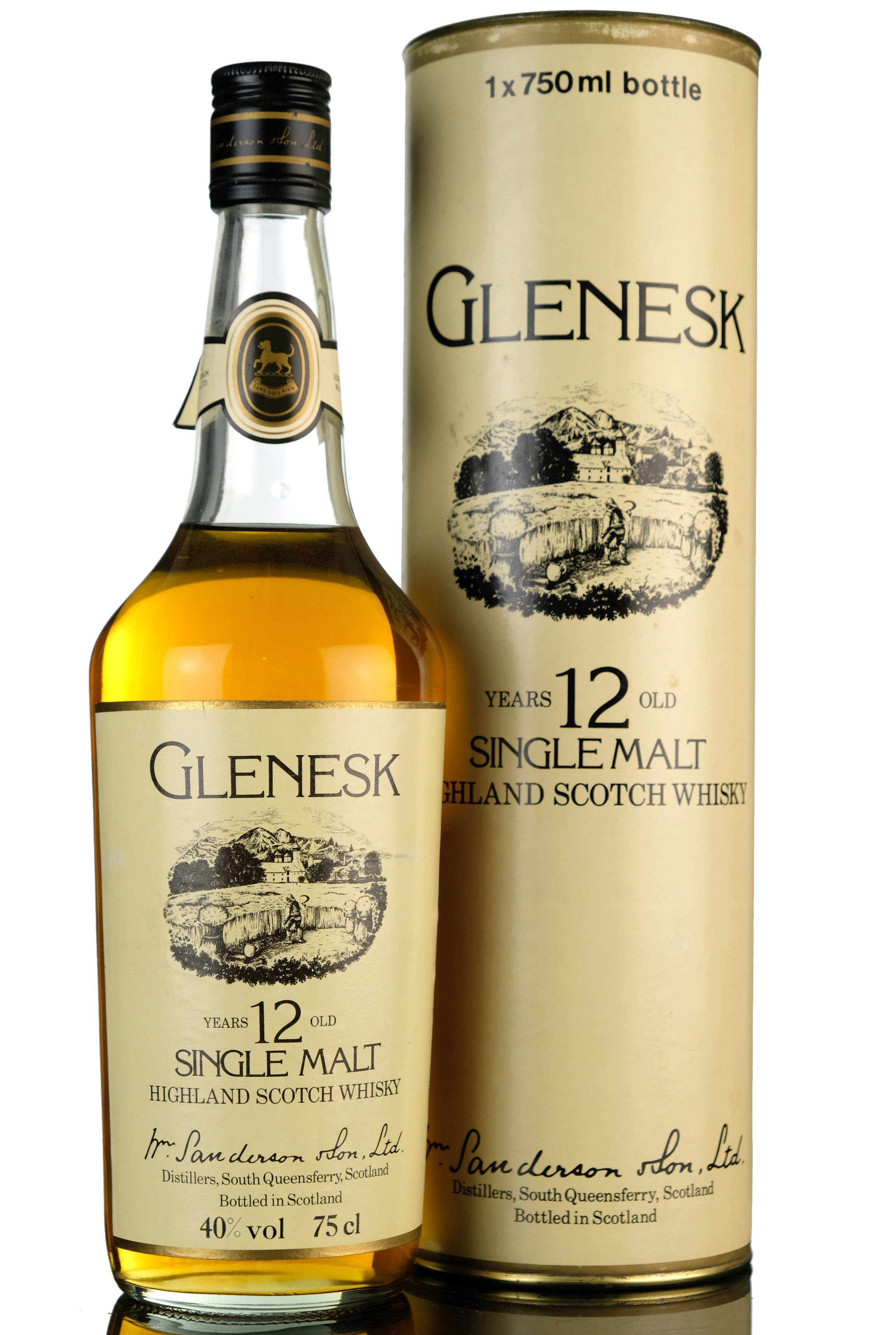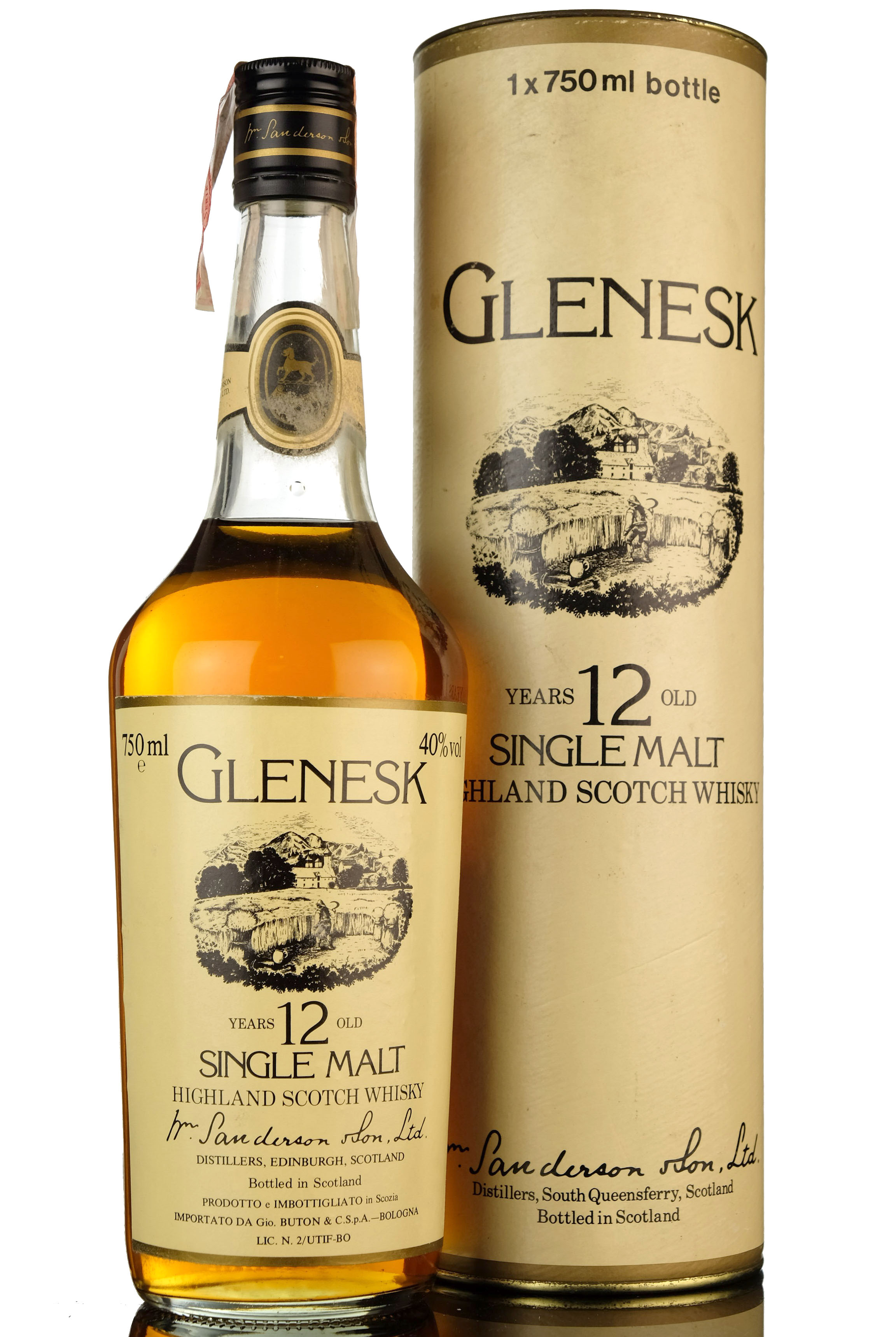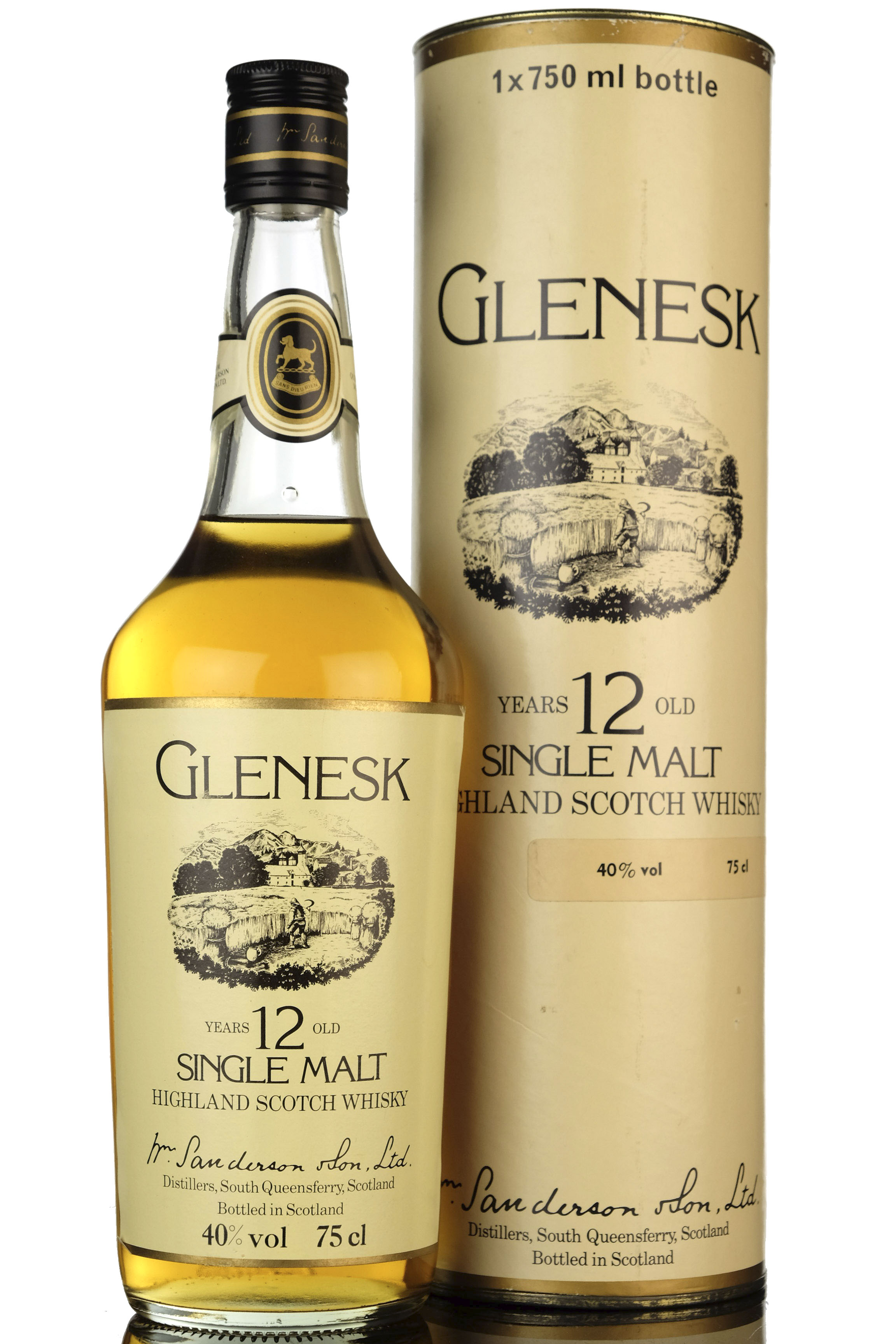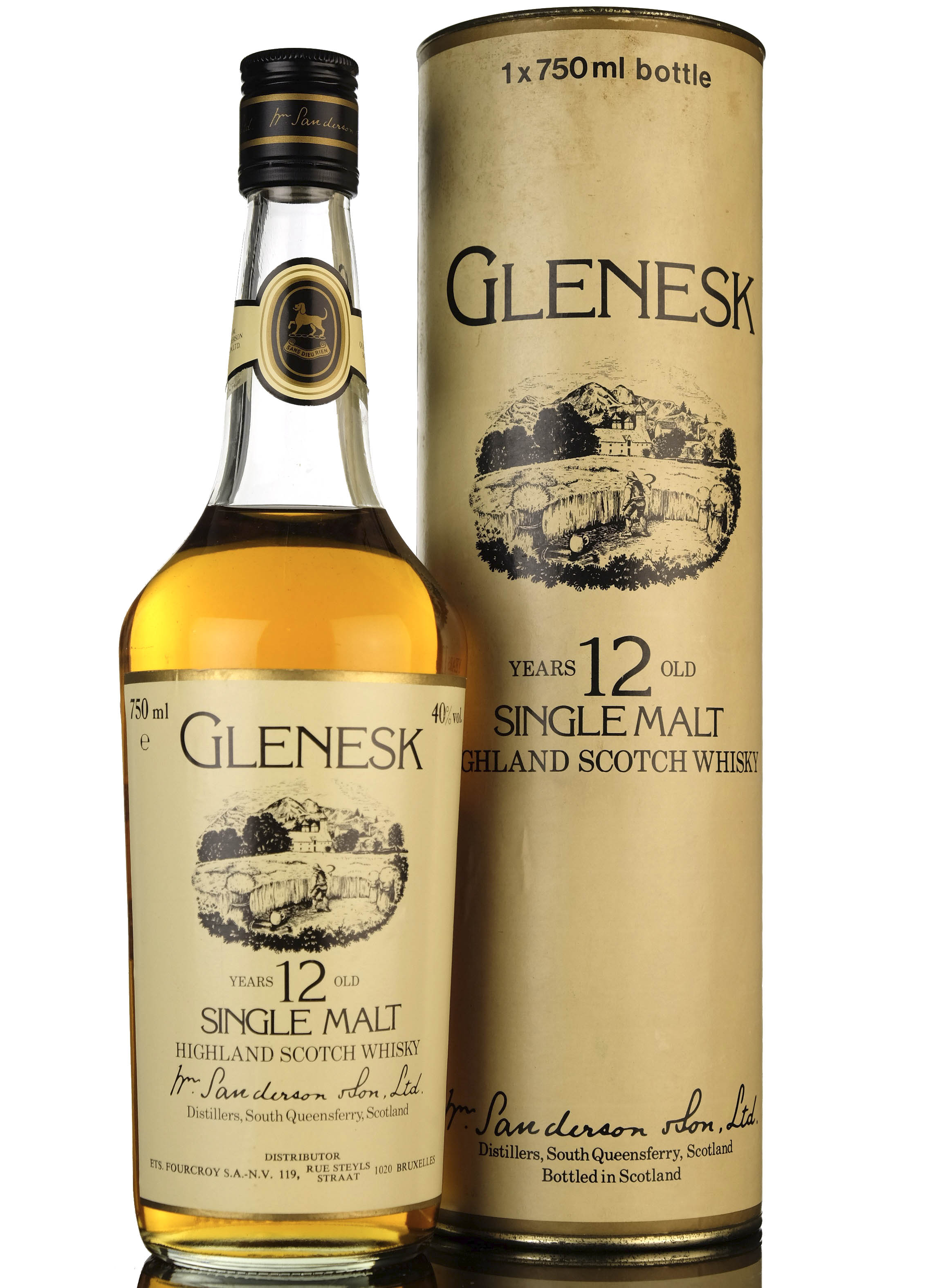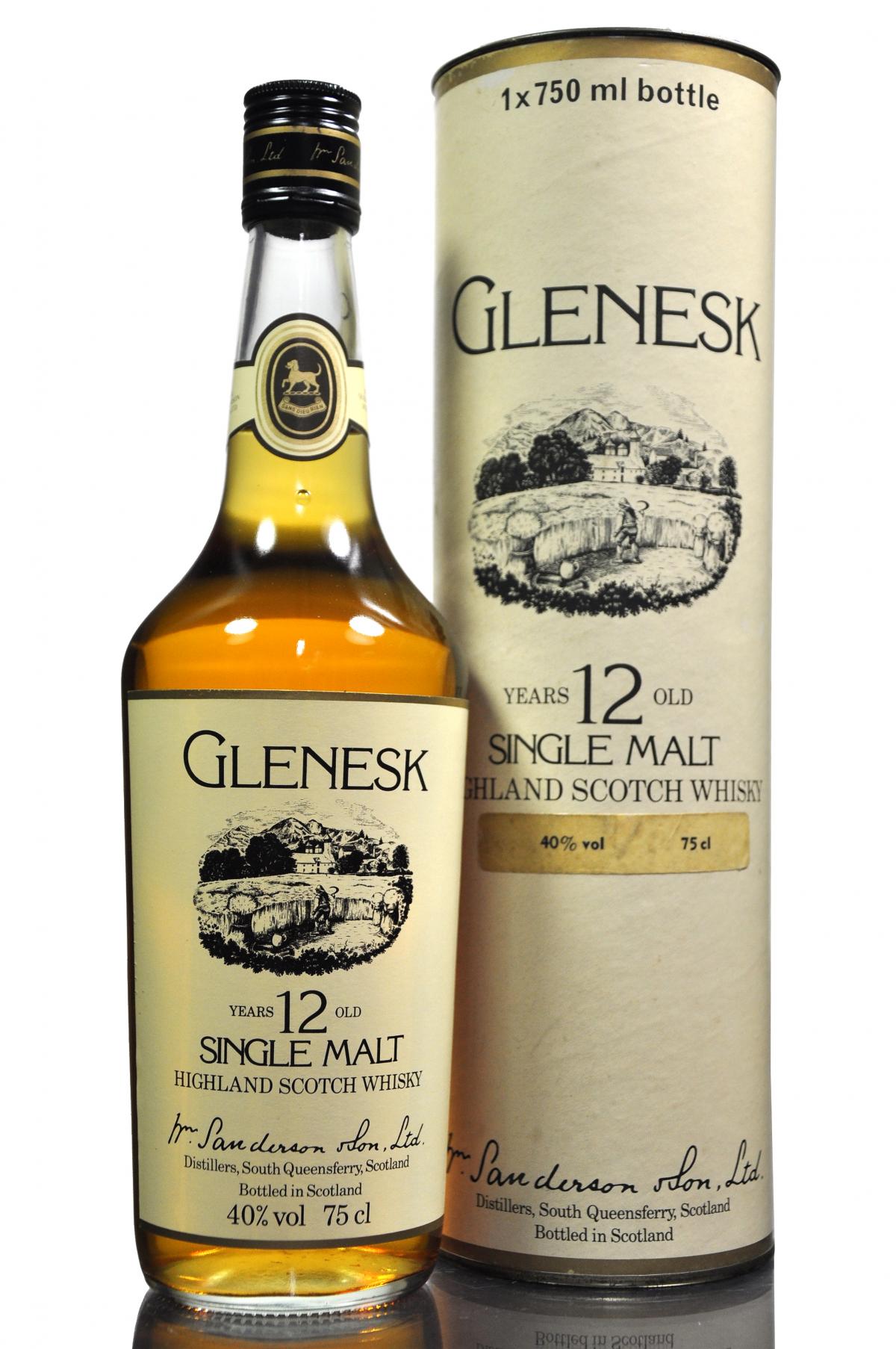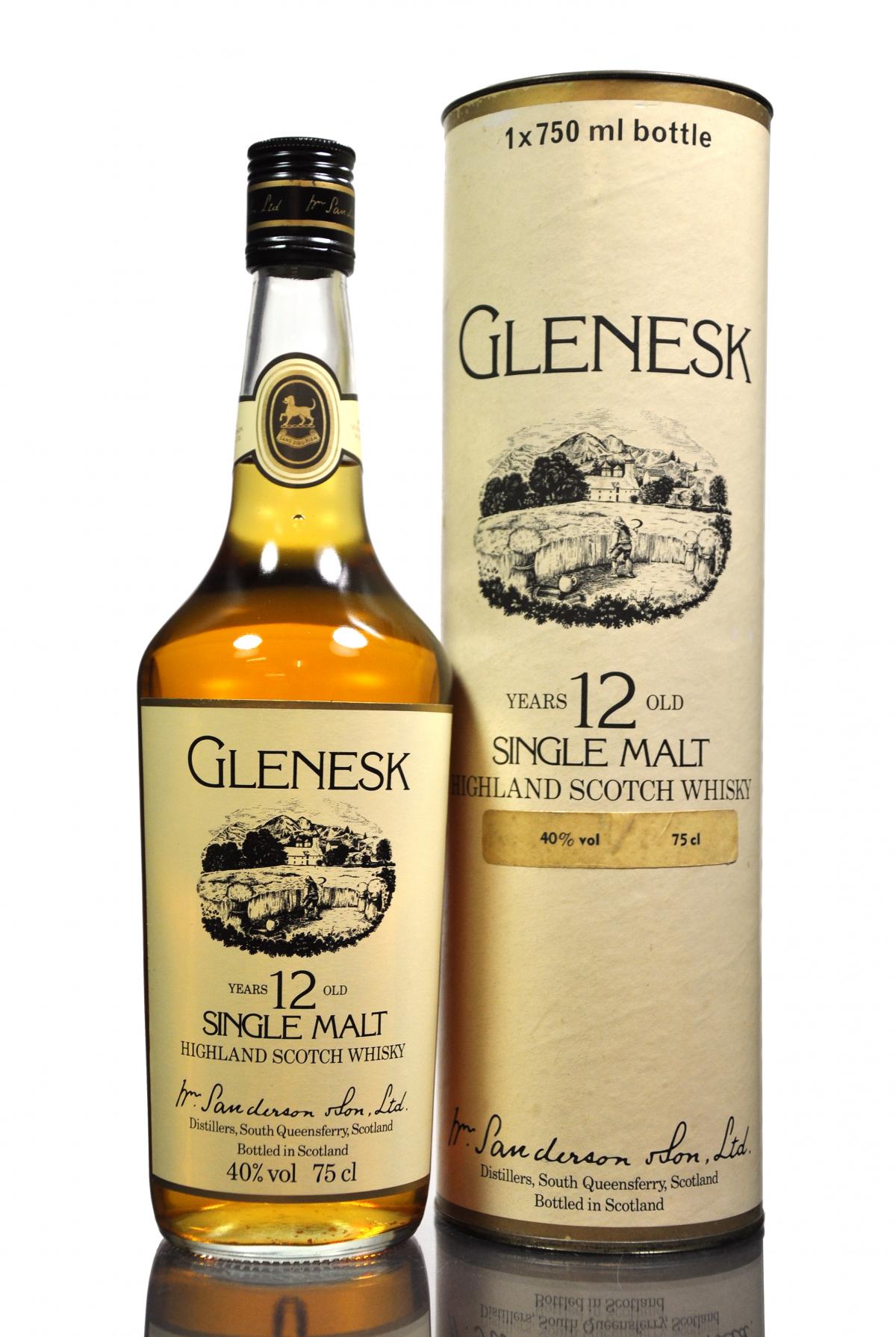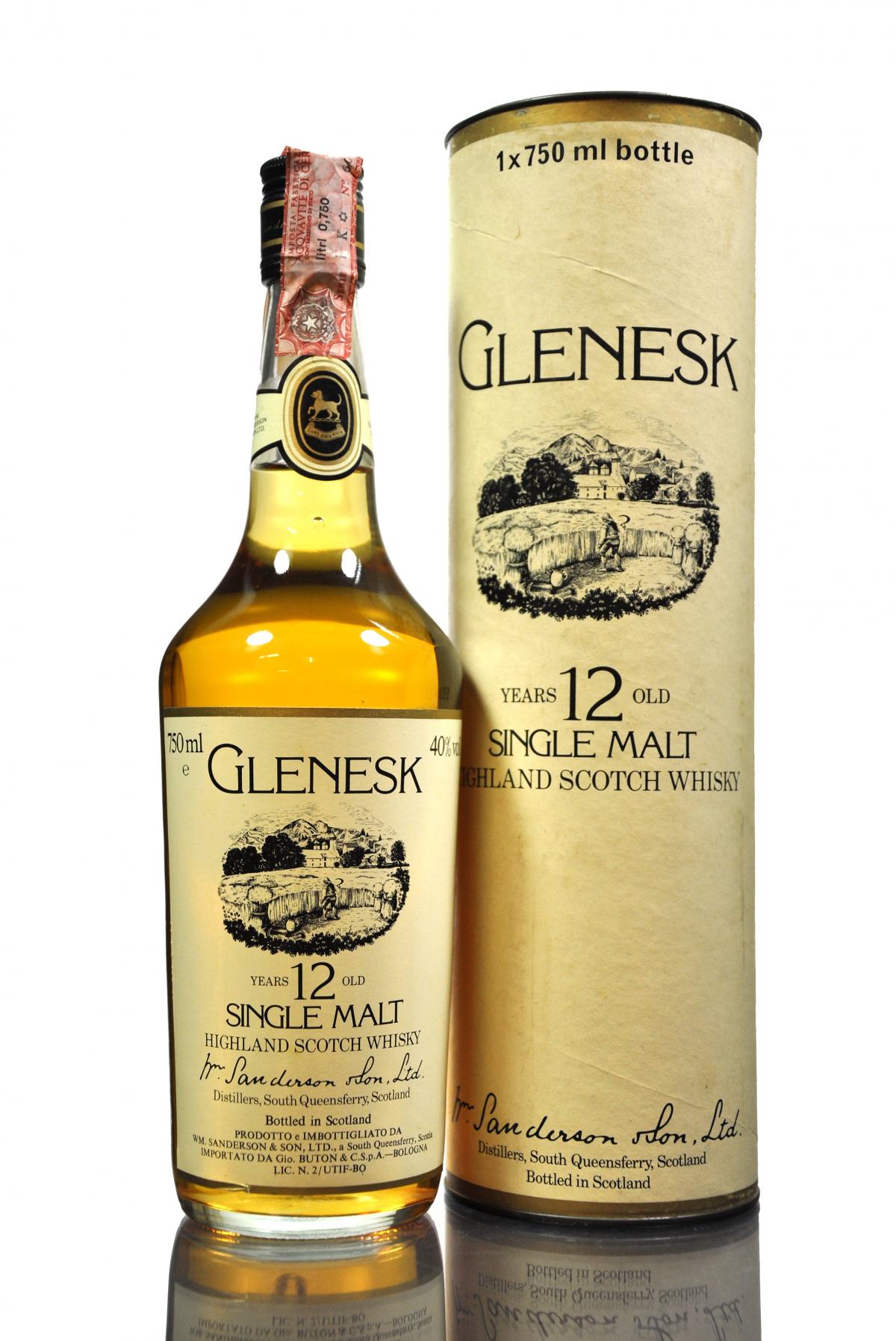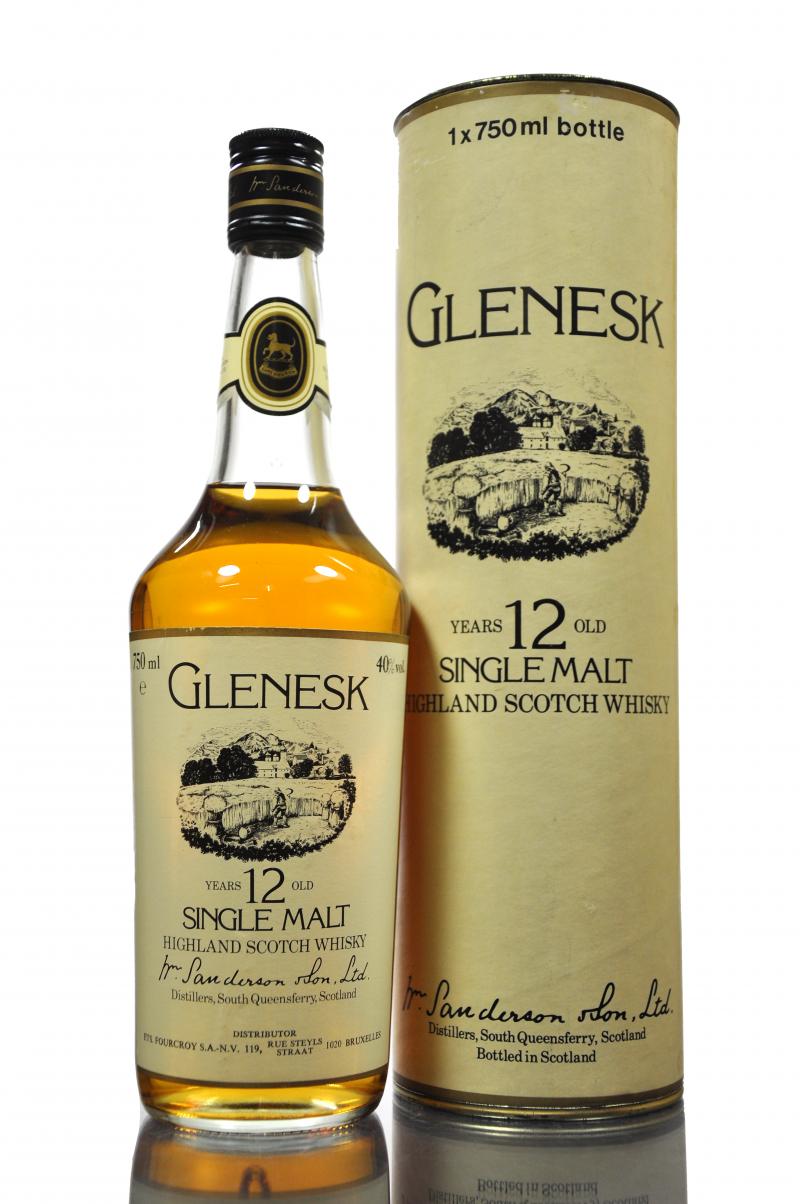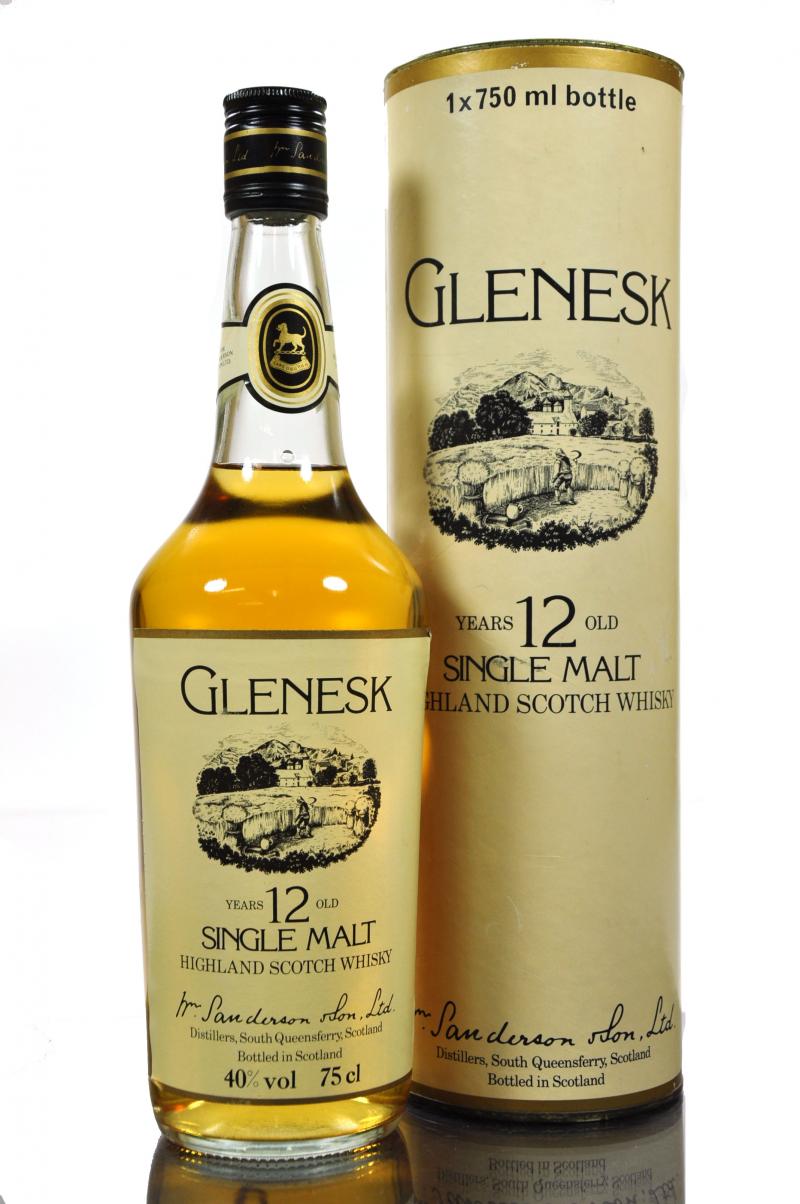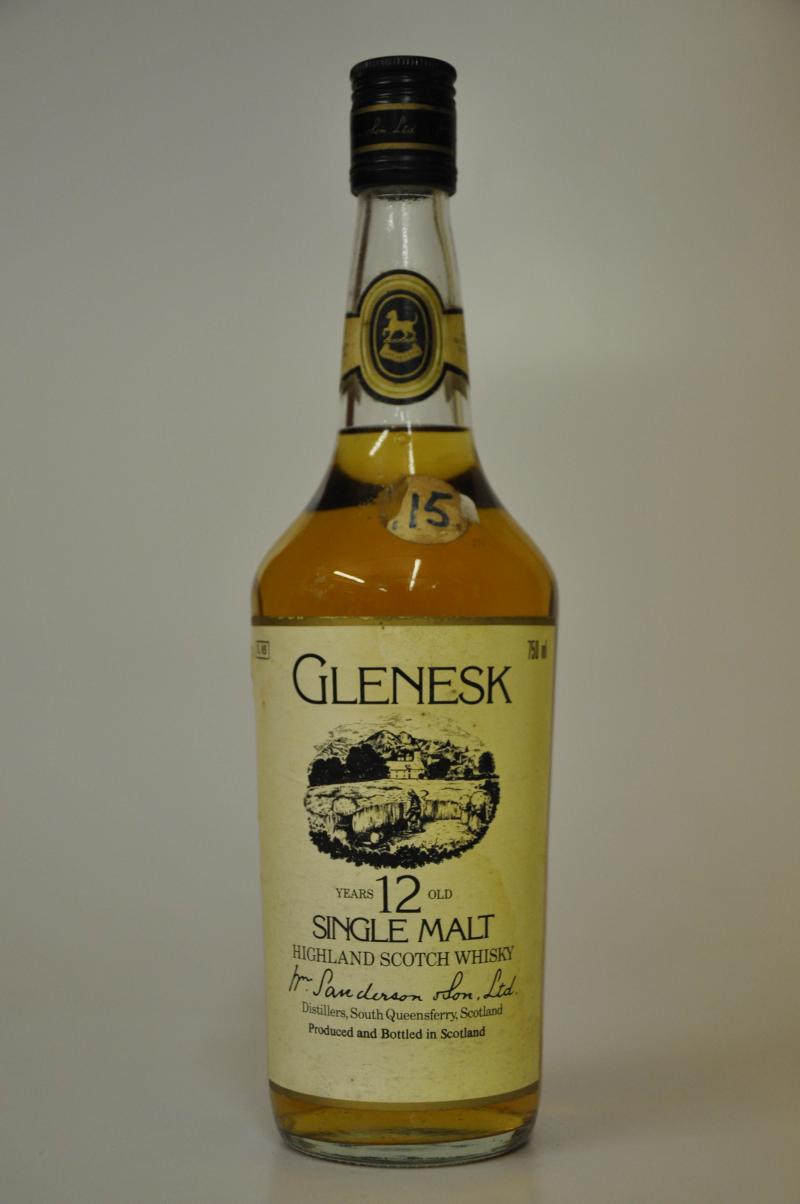Total Lots Sold:
12
View Lots
Do you have this bottle for sale?
SELL IT TODAYHAMMER PRICE OVER TIME
This graph displays data solely from Whisky-Online Auctions past sales history. Please note the filling level of the liquid and the condition of an item can affect the price negatively, so please check individual Lot sales below if there's a sudden dip in the graph.
HAVE ONE FOR SALE?
Submit your details along with an image and a description of your bottle. We'll then be in touch with the best way to proceed.
WHY SELL WITH WHISKY-ONLINE AUCTIONS?
0% Sellers Commission
Free Collections Available
Over 30 Years In The Whisky Industry
Over 1,700 Five Star Trustpilot Reviews
We Sell The Rarest Whiskies Ever Bottled
Global Buying Audience Including Far East Buyers
Bespoke Auction Platform
Thousands Of Active Bidders
Large Database Of Newsletter Subscribers
Over 36k Social Media Followers
Glenesk 12 Year Old - 1980s
Glenesk 12 Year Old. Bottled 1980s. 75cl. 40%.
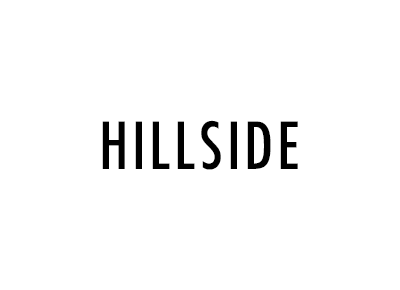
Originally built in 1897, Hillside / Glenesk had a chequered past during which its name and function changed frequently - the distillery was earlier known as Highland Esk, North Esk or Montrose and was at different times used to distil either malt or grain whisky, or just as a maltings for other distilleries.
Diageo forerunners DCL took over what was then the Montrose grain distillery in 1953, and turned it into the Hillside malt whisky distillery in 1964 under their Scottish Malt Distillers subsidiary. Hillside produced old style grassy, minerally single malt whisky until its closure in 1985, by which time the name had been changed, for the final time, to Glenesk.
Glenesk was officially bottled in the 1980s as Glenesk 5-year-old and 12-year-old under DCL subsidiary Wm Sanderson & Son; at auction, the best Hillsides are the superb official Rare Malts editions released between 1995-97, while most independent bottlings use the Glenesk name.
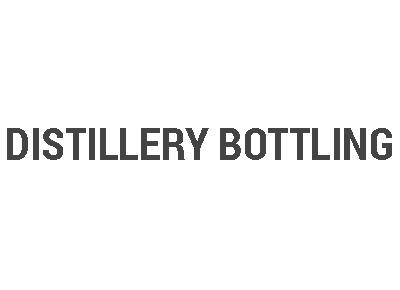
Distillery bottlings are, as the name suggests, bottled by or for the distillery from which the whisky has originated and are thus often referred to as Official Bottlings or OBs. Distillery bottlings are generally more desirable for collectors and usually fetch higher prices at auction than independent bottlings. They are officially-endorsed versions of the whisky from a particular distillery and are therefore considered the truest expression of the distillery’s character.
This ideal of the distillery character is regarded so seriously by the distilleries and brand owners that casks of whisky that are considered to vary too far from the archetype are frequently sold on to whisky brokers and independent bottlers. When this happens, it is often with the proviso that the distillery’s name is not allowed to be used when the cask is bottled for fear of diminishing or damaging the distillery’s character and status.


